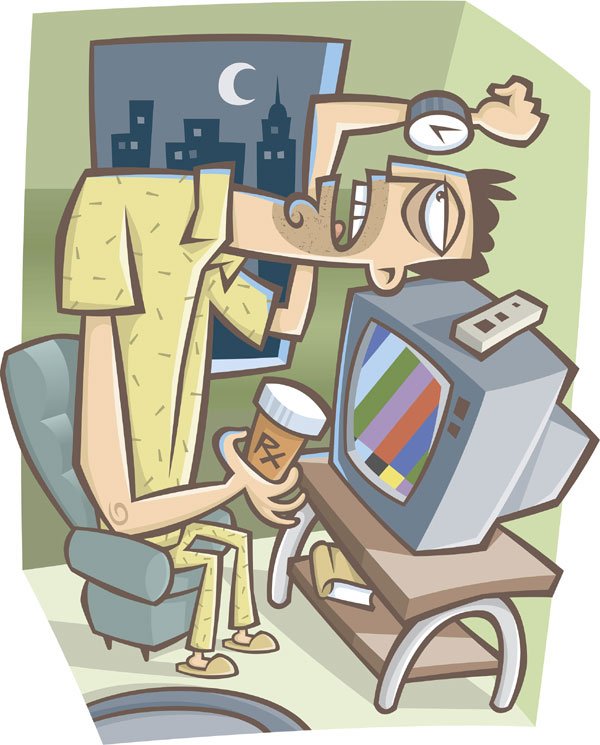GILROY
– In today’s fast-paced, high-tech world, it’s no surprise that
we live in a sleep-deprived society. While a new study shows that
even children are not getting enough sleep, kids and their parents
in Gilroy seem to do a better job of getting a good night’s
sleep.
GILROY – In today’s fast-paced, high-tech world, it’s no surprise that we live in a sleep-deprived society. While a new study shows that even children are not getting enough sleep, kids and their parents in Gilroy seem to do a better job of getting a good night’s sleep.
According to a survey conducted by the National Sleep Foundation and released earlier this week, the problem starts with infants and continues as children age, with TV and caffeine contributing to lost sleep. Also, many parents do not know how much sleep their children should be getting.
In his parent newsletter, Rucker Elementary School Principal Steve Gilbert offers a reminder that children should be getting 10 hours of sleep each night.
“I know we’ve got kids falling asleep in the classroom here and they fall asleep because they’re not getting enough sleep at home,” he said.
He attributes late bedtimes to a variety of factors, from busy lives in general to rowdy children or a lack of supervision from parents.
The National Sleep Foundation survey of 1,400 adults showed that one-quarter of infants, toddlers and preschoolers appear sleepy during the day, while nearly three out of 10 school-aged children have difficulty waking in the morning.
The survey also found that:
• Infants are getting an average of 12.7 hours of sleep, but need 14-15 hours; toddlers aged 12-35 months get 11.7 hours, but need 12-14 hours; 3 to 5-year-olds get 10.4 hours, but need 11-13 hours.
• More than half the parents said their child’s doctor did not ask about their children’s sleep habits, although 69 percent of parents report sleep-related problems in their children.
• Nearly three in 10 parents experience insomnia at least a few nights a week
• About half of all parents have a child disturbing their sleep an average of twice a week. Parents of infants lose the most – many more than 200 hours in their child’s first year.
Frank Valadez, a counselor with Gilroy Unified School District, said he sometimes gets referrals from teachers because a student was acting excessively tired in class or putting his or her head down on the desk.
Gilbert said a lack of sleep affects children much like it affects adults.
“There’s a whole range of behaviors,” he said. “I think you could generally say that tired kids are less attentive in class, they’re daydreaming more, they’re sitting there with their eyes open looking at the teacher but they’re really asleep.
“Where it shows up is in how much they learn.”
Those informally surveyed around Gilroy indicated residents in the garlic capital may fare better those nationally when it comes to getting sufficient amounts of shut-eye.
Second-grader Elishiba Hill’s habits are just what the sleep experts order when it comes to getting the right amount of sleep.
She has a strict bedtime of 8 p.m. and wakes each morning around 6 a.m., for a total of 10 hours of sleep a night. Sleep experts recommend that school-age children get 10 to 11 hours of sleep a night, but most are getting 9.5 hours.
If Hill isn’t ready for bed on time, “I will get in trouble,” she said.
Although she takes a daily nap, Hill said she’s happy to go to bed on time because that is when she feels tired.
Laurie Oliver says her two daughters, ages 4 and 6, also get between 10 and 11 hours of sleep each night.
“They sleep through the night and they sleep in their own beds,” she said.
Be that as it may, other kids are waking up during the night on a regular basis. Thirty percent of all children aged 1 to 10 wake at least once a night needing attention, the National Sleep Foundation survey showed. Those children then affect their parents’ sleep.
Even if her children aren’t hurting her nightly sleep, Oliver said she could use more than the seven hours she averages.
“I have a tendency not to go to bed” because she gets distracted by other things and suffers from seasonal allergies, she said.
“I’ve learned to live like a zombie since having kids.”
Parents polled slept about 6.8 hours a night, just under the recommended seven hours.
Oliver enforces a bedtime of 8 p.m., sending her girls to brush their teeth and slip on their pajamas half an hour earlier. They wake up between 6 and 7 a.m. and stay awake and alert through the day, she said.
Children’s daytime behaviors are related to their sleep habits, the study showed. Children who drink a caffeinated beverage – 26 percent of those 3 years and older – sleep less than those who abstain from drinks like soda or iced tea. They lose about 3.5 hours a week.
TVs and computers in the bedroom also contribute to lost zzz’s: Children with a TV in their room went to sleep 20 minutes later and slept less than those without one, losing more than two hours of sleep a week.












